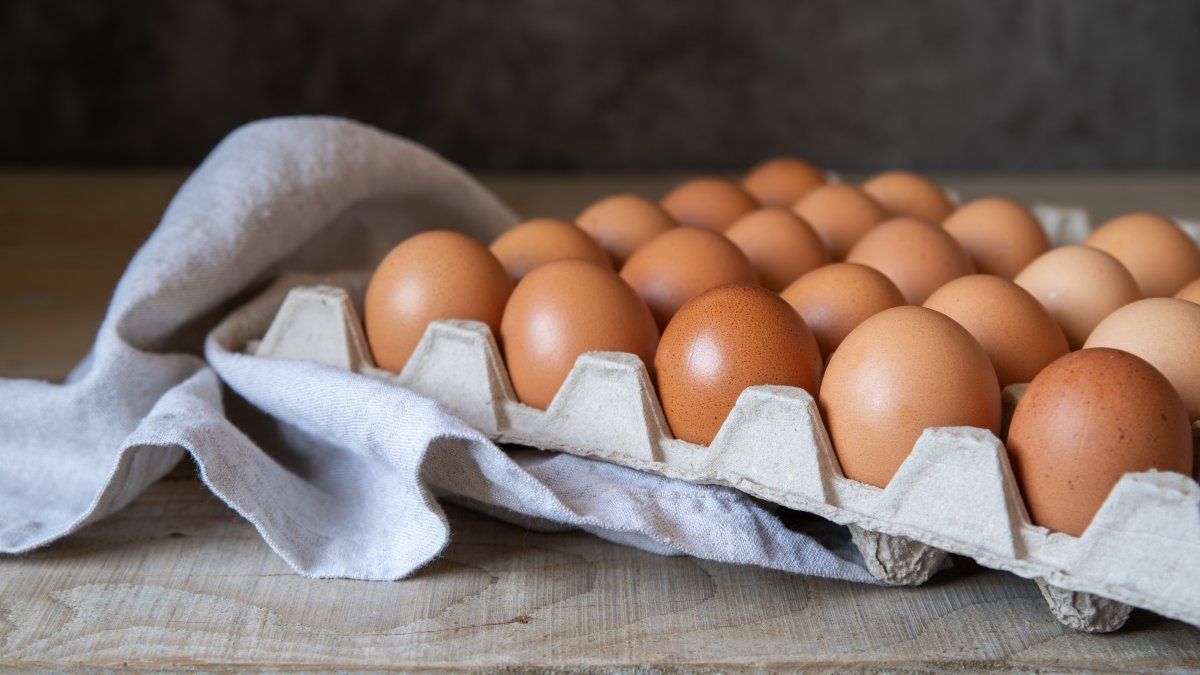The production and consumption of egg They are advancing in a trend of clear growth. During 2023, activity grew by 2.88% and reached 15,807,600,000 units. Per capita consumption also showed an increase, reaching 336 eggs per year. The preliminary data for 2024 are even more encouraging, since per capita consumption would be 352 units. Quite an achievement for a chain that has challenges – like all productive activities in the country – but that incessantly fights to gain a more important place in consumers’ diets every day.
With this premise, from the chamber that brings together producers, they asked for the reduction of the value added tax (VAT) to eliminate the distortions that are generated when marketing the product on shelves since these types of situations affect competitiveness. For this reason, CAPIA demanded that the Government “eliminate VAT on eggs, which are currently taxed at 21%, while other animal proteins are taxed at only 10.5%.
Javier Prida, executive president of CAPIA, explained that “The request to reduce the VAT rate from 21 to 10.5% is due to the fact that we are at a disadvantage compared to the rest of the animal proteins. All meats pay 10.5%, milk pays 10.5% and eggs pay 21%. We need the rate to be reduced to 10.5% because this will make the business more transparent, it will formalize it much more, allowing us to have more certainty about the real numbers of the productive and economic situation of different producers.”
It happens that in this type of productive chains, informality is a long-standing problem, where not only is information about the productive system lost with the consequent tax impact that this implies, but there are also health issues that would be key not to neglect. Formality is not only a tax necessity but has other aspects that should be considered more firmly.
According to Prida, the review of the tax issue “will inevitably lead to a benefit for the consumer, who today spends 2.46% of their salary per year on eggs. If they lower the 10.5% VAT, that would translate into an improvement of at least 0.2% of their entire salary. That figure for a consumer is a lot of money but for the state it would be neutral, because it will help formalize the business. What they lose by reducing the rate from 21% to 10.5% they will gain with the formalization of the sector.”
These types of changes in the tax matrix are completely viable, however it is important to highlight that zero impact would be achieved over the years and during that period, some type of impact could be generated in fiscal terms. Although the CAPIA request is absolutely practicable, requests of this nature can be relegated in times like the current one, where state resources are scarce and urgency prevails.
In any case, one aspect to highlight within the activity is the geographical distribution that poultry farmers have throughout the country, reaching 18 provinces in which they directly and indirectly employ more than 32,000 people. With Buenos Aires, Entre Ríos, Córdoba and Mendoza as large productive areas, egg production stands out for promoting the economic development of regional economies and the roots of rural communities.
With this productive base, the sector aims to obtain financing to increase modernization, since 20% of farms have not yet incorporated advanced technologies. To achieve this, CAPIA will seek to develop an export pre-financing system that allows the recovery of foreign sales levels prior to 2023, in a domestic market context with almost 98% of production destined for local consumption.
World Egg Day
It was established in Vienna in 1996, when it was decided to celebrate the power of the egg on the second Friday of October each year. In Argentina since 2006, World Egg Week has been celebrated by making the closing of the celebrations coincide with the date agreed upon globally. This year it will begin next Monday the 7th and will end on Friday the 11th of October.
Over the years, World Egg Day has seen a wide variety of celebrations, including egg festivals, scientific conferences, recipe competitions, fairs, egg donations, award ceremonies, among many others. This year, Argentina celebrates with a recipe marathon with 14 chefs and doctors cooking live on the YouTube channel of the Latin American Egg Institute.
The importance of consuming eggs
It is one of the oldest foods, since signs of the first domesticated laying hens date back to 7500 BC. C. Today, the bioavailability and nutritional density provided by eggs have the capacity to directly improve the results of human nutrition.
As a widely consumed food of animal origin, the egg is praised for its important nutritional benefits, particularly in terms of human development and growth. It is essential in infants, young people and pregnant women, as well as in low-resource settings. Eggs contain the highest quality protein and 13 vitamins and minerals that the body needs to protect and promote health.
Egg proteins contain the 9 essential amino acids for the body and the best utilization score. Protein quality exceeds 100% for eggs, compared to rice at 37% and wheat at 45%. Proteins are essential for health, since in addition to forming the body’s muscle mass, they are part of the blood, hormones and antibodies. Two medium-sized eggs provide enough protein to cover more than 30% of an adult’s recommended protein intakes (RI).
Source: Ambito
I am an author and journalist who has worked in the entertainment industry for over a decade. I currently work as a news editor at a major news website, and my focus is on covering the latest trends in entertainment. I also write occasional pieces for other outlets, and have authored two books about the entertainment industry.




